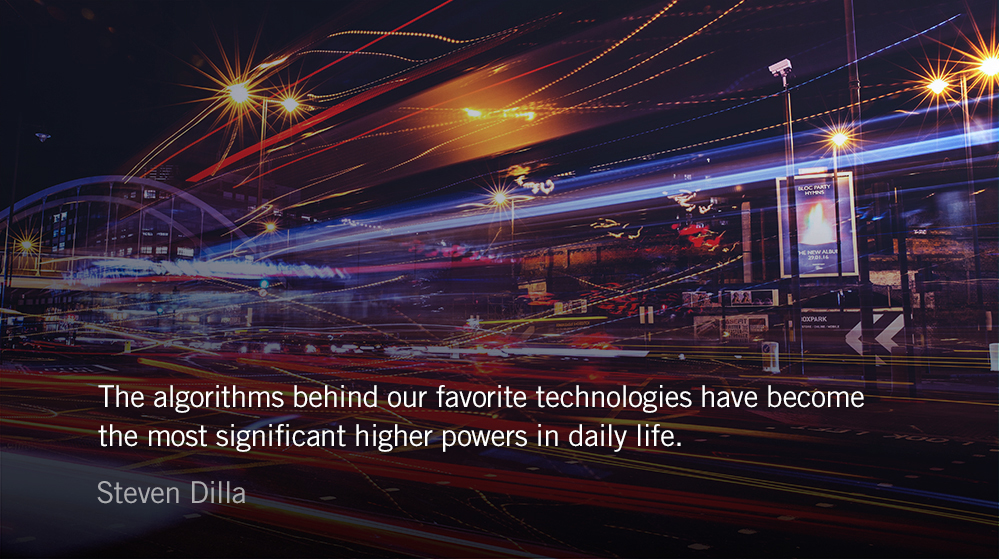There is a superficial question which asks, “should Christians drive luxury cars?” Then there is a deeper question which examines the way everyday objects metastasize our idols so effectively we no longer notice their presence in our lives. Italian pastor Leonardo de Chirico observes:
Idols like to take form in artifacts. Statues, pictures, images, and buildings are not in themselves idols but are masks for idols, interfaces for idols. Idols like to leave their traces behind them. Idols like to shape the city in a visible way. We have to grasp spiritually the theological skyline of the city.
As individual car ownership begins its decline—replaced by car-sharing and autonomous vehicles—we can pause to reflect on how it has shaped our culture—and how what comes next will reshape the world.
In 1971 science fiction author J.G. Ballard pondered our “strange love affair” with the car. Ballard had just driven a 1904 Renault Park Phaeton across Germany for Drive Magazine and wrote:
If I were asked to condense the whole of the present century into one mental picture, I would pick a familiar everyday sight: a man in a motor car, driving along a concrete highway to some unknown destination. Almost every aspect of modern life is there, both for good and for ill—our sense of speed, drama, and aggression, the worlds of advertising and consumer goods, engineering and mass-manufacture, and the shared experience of moving together through an elaborately signaled landscape.
Ballard’s words are strangely prophetic and his vision of the automobile has come to define western culture. Recently, Robert Moor picked up Ballard’s work and asked the question it begs as we enter this new era of transportation, “Is the Self-Driving Car Un-American?” Autonomous vehicles eliminate many of the aspects of driving that have come, for better or worse, to define our culture. Moor explains:
[Ballard] sensed that the car’s toxic side effects—the traffic, the carnage, the pollution, the suburban sprawl—would soon lead to its demise. At some point in the middle of the 21st century, he wrote, human drivers would be replaced with “direct electronic control,” and it would become illegal to pilot a car.In Ballard’s grim reckoning, the end of driving would be just one step in our long march toward the “benign dystopia” of rampant consumerism and the surveillance state, in which people willingly give up control of their lives in exchange for technological comforts.
The algorithms behind our favorite technologies have become the most significant higher power in daily life. Our apps and devices speak to us in silent moments, help us navigate the world, and extend our ambitions beyond our wildest dreams.
We give ourselves to them for what is, on the surface, convenience (they are engineered this way) and the allure of what is just beyond our reach—yet they are incapable of delivering more than mere images of our deepest needs.
After arriving in Stuttgart, the home of Mercedes Benz, Ballard reflected on the central promise that drives us back to the car, and perhaps all technology:
The car as we know it now is on the way out. To a large extent I deplore its passing, for as a basically old-fashioned machine it enshrines a basically old-fashioned idea—freedom.
Weekend Reading List
- Identifying the Idols of the City. Leonardo de Chirico for Gospel in Life.
- Is the Self-Driving Car Un-American? Robert Moor for New York Magazine.
- The Car, The Future. J. G. Ballard for Drive Magazine (1971).
- The Scientists Who Make Apps Addictive. Ian Leslie for 1843 Magazine.
Today’s Reading
Hosea 1 (Listen – 2:08)
Psalms 119.73-96 (Listen – 15:14)
This Weekend’s Readings
Hosea 2 (Listen – 3:48) Psalms 119.97-120 (Listen – 15:14)
Hosea 3-4 (Listen – 3:53) Psalms 119.121-144 (Listen – 15:14)






